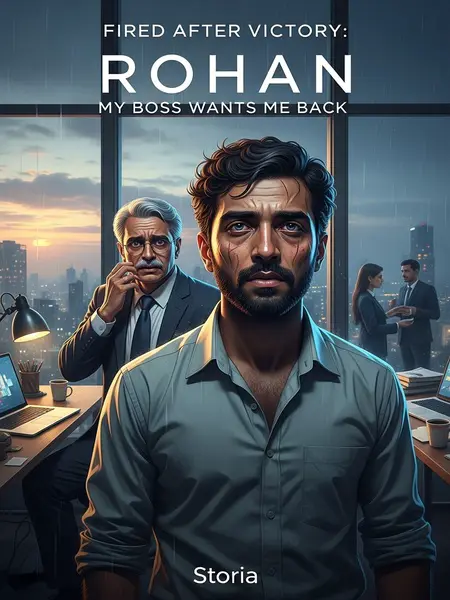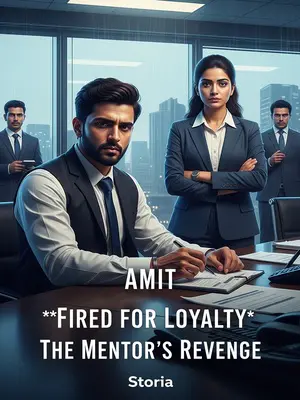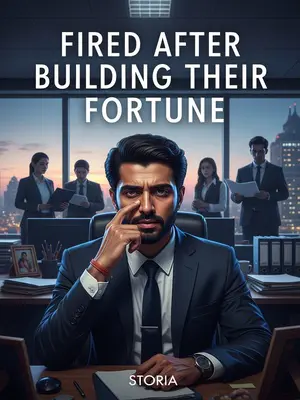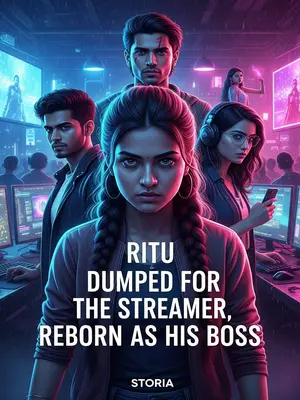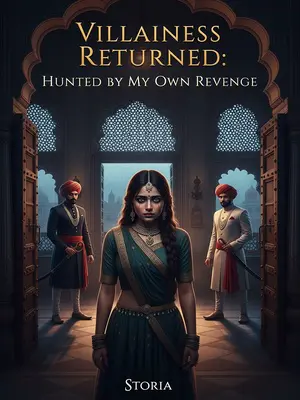Chapter 1: The Donkey at Aryatech
At Aryatech, once the donkey’s done grinding the millstone, it’s off to the butcher—just like that, they dumped me as soon as the project was done.
As we say, "Kaam nikal gaya toh pehchaan te nahi"—once your work is finished, suddenly nobody remembers your name. I should have seen it coming; in the end, they treated me like yesterday’s leftover chai—stale and forgotten.
Management decided it was cheaper to hire a fresh-faced newbie for maintenance.
Just like those budget-obsessed baniyas, always looking for a shortcut to save money. Why waste rupees on someone who knows the ropes when you can get a fresher to do jugaad for half the price?
But what they didn’t understand was, after all those endless requirement changes, the code was a patchwork quilt of chaos—something no rookie could manage.
That codebase was like Mumbai traffic at rush hour—utterly tangled, with secret turns only a regular could navigate. As if any random fresher could untangle that mess!
Sure enough, the moment I left, disaster struck.
It was like Holi, when all the hidden stains finally come out. In no time, their precious system was up in smoke, and I could just imagine Rajiv Sharma muttering, "Arrey yaar, ab kya karein?"
When HR told me I was being let go, I was honestly shocked.
It felt as if the ground had vanished beneath my feet—one moment I was the hero, the next, just garbage on the curb. For a split second, my mind went blank, like the time there’s a sudden power cut in the middle of an IPL match.
I stared at the flickering tube light above HR’s head, waiting for someone to say it was all a joke.
Just last week, the major project I’d led had launched without a hitch.
We’d celebrated with samosas and chai, the team high-fiving like we’d won the Ranji Trophy. Even the canteen uncle had slipped me an extra jalebi that day.
He winked and pressed the jalebi into my palm, saying, “Aaj toh party banti hai, beta!”
The boss himself announced bonuses for the project team. He even patted me on the back and called me the backbone of the company.
His hand was heavy on my shoulder, the strong scent of Old Spice lingering a bit too long, but for once, all those late nights felt worth it.
And now, just days later, this so-called pillar was being thrown out.
What a joke. In India, even pillars get a fresh coat of paint before Diwali, but I was being demolished entirely. "Log kya kahenge," my mother would have said, shaking her head in disbelief.
HR’s face was unreadable.
She looked like she was reading out the morning news headlines—flat, detached, no apology. Maybe she’d done this so many times she was numb.
"The company will give you all the compensation you’re owed. Please complete the resignation process today."
Her voice was sticky sweet, like overcooked gulab jamun. Her bangles clinked as she pushed the papers toward me, eyes avoiding mine.
A faint whiff of rose talc hung in the air, oddly out of place in that moment.
I’d been at Aryatech for exactly a year. At best, the payout would cover two months’ salary.
Enough for a short Goa trip, maybe. But this wasn’t about the money. It was about the way they treated me—like a used rickshaw tyre. No respect at all.
But it wasn’t just the money. What truly stung was how they burned the bridge after crossing the river.
Even in my small town, people showed more loyalty. These corporate types—today you’re a hero, tomorrow a ghost. They’ll forget you faster than last year’s IPL score.
When they hired me, the project had just kicked off. AI was exploding everywhere, and Aryatech wanted a piece of the action to impress investors.
My father still didn’t get what AI meant—he told everyone I worked with “robot waale software.” But in those days, every company wanted some AI magic to show off.
I had experience developing and deploying AI models, so as soon as I joined, I dived into the new R&D project with my team.
Those first weeks felt like a mission. We crowded around the whiteboard, scribbled equations, drank endless chai, and sometimes missed lunch altogether. No one cared about titles—only the result mattered.
In a small company, job titles are a joke—one person does the work of four. I never complained.
Once, I was coding, fixing the Wi-Fi, and answering client emails all within the same hour. I even unclogged the office sink when the cleaner didn’t turn up. It’s all part of the desi start-up life, na?
The grind over the past year needs no explanation.
Late nights, power cuts, cold vada pav at midnight. Sometimes, the only company left was me and a cockroach darting past my mousepad.
But I never saw this coming.
Somewhere, I’d believed in that old promise—work hard, be loyal, and they’ll stand by you. How naïve.
First thing they do after the product goes live? Lay me off.
It’s like scoring a century, only to be benched for the next match. What an insult.
The irony is, just last night I was still working invisible overtime, up past 2 a.m. to document the project’s issues for improvement.
As usual, the office AC died after midnight, so I was sweating and typing, half-asleep—only for all that effort to go straight down the drain.
Back at my desk, Manager Rajiv Sharma was chatting with the others. When he spotted me, he said, all casual, "Arre Rohan, don’t take it too hard. This is just normal resource optimisation, you understand, right?"
His voice dripped with fake sympathy. He even raised his eyebrows, like he was doing me a favour. For a second, I wanted to throw my coffee at him, but I just clenched my jaw.
Yeah, I understand your grandmother’s leg.
In my head, I heard my friend Sameer’s voice: “Bhai, these managers, sab nautanki karte hain.”
The rest of the team already seemed to know I was out—their faces were awkward.
No one met my eyes. Priya started typing furiously, pretending to be busy.
She kept glancing at her phone, as if waiting for the right meme to send but never finding it.
Akash gave a small, helpless shrug, mouthing “sorry” when Rajiv wasn’t looking.
And I didn’t miss the flash of smugness in Rajiv Sharma’s eyes.
The man was glowing, as if he’d scratched a winning card at Big Bazaar. That look made my blood boil.
Damn.
I wanted to spit. This was the thanks I got for breaking my back for them.
This old man had probably been waiting for this day forever.
Maybe he’d even done a little puja at home, praying for my exit as a blessing. Some people never change.
